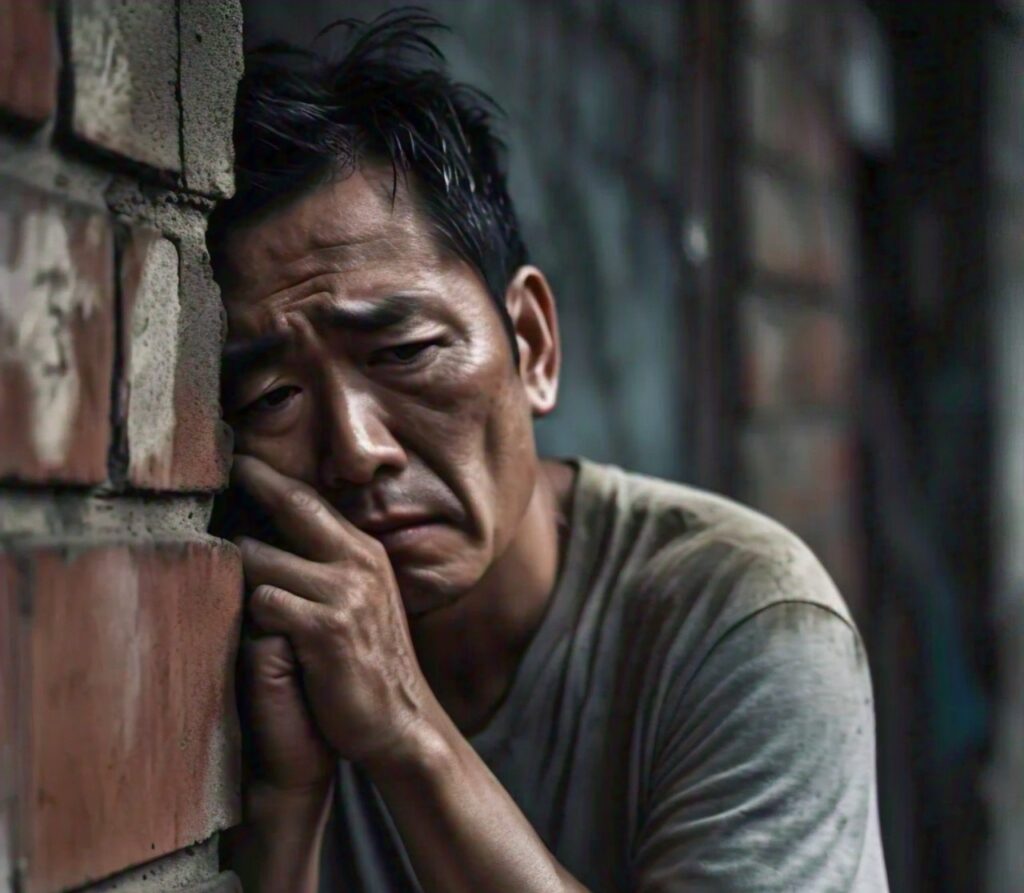Every person has moments of joy and sorrow in their lives. There are bad things that can happen regularly to family or friends. However, there are some who insist that it’s never their fault. They say they are not in control of the difficult situations and issues they face. They simply just accept that it happens to them.
Victimhood can become a part of a person’s identity; however, it is an acquired habit that can be altered. It can be an attempt to protect yourself from dealing with life’s challenges.
The act of playing victim can be a deceitful technique that will never get you anywhere. It can make you feel apathetic and self-centered, as well as harmful when you do this to others. Everyone doesn’t want to be the target of the swindling or abuse of another’s actions. Yet, being a victim and not actually being a victim is something that lots of people are known to do.
What Is a Victim Mentality?
Someone who operates out of a sense of victimhood believes that the events that happen to them are due to somebody or something else other than themselves. It could be the fault of their family, partner, friends, and co-workers, as well as “the way the world is.” They frequently bemoan the negative events that occur in their own lives. They’re hesitant to accept their responsibility, claiming that the events aren’t theirs.
People who continually put the blame on other people or events for events that they happen to experience have an attitude of victimization.

Being a Victim vs. Playing the Victim
There’s a distinction between having the experience of being the victim and playing the victim. Being aware that you’re victimized by abuse, trauma, crime, or any other circumstance is not the same as acting as if you’re the one who is. Playing involves some degree of fabrication, exaggeration, or manipulation.
Simply put, the definition of a victim is that you’re actually in a position where you have been victimized legitimately. In the case of this article, you are an abuse victim. I’m not negating or denying that, but being an innocent victim can be transformed into acting as the victim who is victimized when your role as a victim is used to avoid accountability or to feel self-pity and hurt, manipulate, or take control of other people.
Why Play a Victim: Why do People behave this way?
No accountability
Being accountable for what you do in your life means putting yourself in the control room. It can be frightening for those with the mindset of a victim. It is necessary to acknowledge that life isn’t just the result of the actions of others. Accepting responsibility breaks the shield of victimhood.
Secondary gain
Many people’s problems persist due to these secondary advantages. Attention, sympathy, and access to medications or financial aid are typical secondary gains. People with a victimhood mindset may not be aware that they’re gaining this type of attention and may suffer from severe depression.
Satisfies unconscious needs
People with a victim mindset and, especially from a past experience, unconsciously seek help and validation from others. People who play victim mentality often consistently use the “poor me” card. This can generate sympathy and help from others.
Avoid taking risks
Blaming others is an essential part of the victim-blame mentality. This is a method of avoiding being vulnerable and taking risks.
Why is Playing the Victim such a bad move?
This is a problem because it usually means that you’re shifting the blame. You’re aware that it’s your fault, but rather than being a good human being, taking responsibility, and apologizing, you make it appear as if it was their fault. The worst thing is that if the individual you’re blaming is compassionate, then they’ll likely do it anyway and take responsibility; they’ll apologize for something that was YOUR fault. How cruel is that? If you regularly do this throughout all your friendships and relationships, We’ll guarantee that it will make everyone feel snubbed and push them away. Everyone hates those who manipulate things only for their selfishness.
If you’re doing that, you’re actually making others feel bad for you instead of doing the right thing and apologizing. Being a victim is among the gaslighting techniques, which is yet another technique for manipulation.
If someone is skilled at this, they’ll use every trick in their arsenal to cause you to feel guilty for them and pity them. If you’re in a fight, they’ll end up having the upper hand constantly because of this.
Signs you or someone has a Victim Mentality
They Don’t Take Responsibility
In the victim role, the person refuses to accept responsibility for the situation they find themselves in. Instead, they blame others to make people feel guilty or simply deny their role in perpetuating the issue.
What can we do? Each situation, circumstance, or event that occurs in their life gives the victim a chance to grow. They might not be entirely accountable for the events that occurred. However, they can inquire if they played a role in some way.
The answer to this question will encourage an individual to be accountable and mature. They will also be more cooperative. Additionally, it can help avoid similar situations in the future.
They Are Frozen in Their Life
Victims feel that they’re in the hands of the world and everything that surrounds them. Most often, victims do not progress in their lives due to the fact that they feel powerless. This is why their lives are stagnant.
If you asked them what they think, they’d answer with an endless list of reasons they’re stuck. The problem is that the person who plays the victim is not likely to explain how they intend to resolve their inability to make improvements in their lives.
To fix this problem, the person referred to as the victim must realize that small actions or adjustments to their mindset could yield big benefits. Help them create a list of smaller, manageable steps that they can take toward an end goal in their lives. Make them accountable and encourage them to be responsible, too, for the purpose of getting rid of their role as a victim.
They Hold Grudges
The victim loves to hold on to old wounds and make others feel guilty about their actions. They carry them around as weapons in case someone tries to hold them responsible for an incident. A victim might revisit old memories and incidents in which they might have been hurt legitimately and make them into reasons as to why they cannot change their attitudes, lifestyle, or current situation.
In order to move forward and stop playing and being a victim, the people engaging in this behavior must recognize that holding grudges will only keep them in a downward spiral. The victim should realize that releasing others from blame can actually mean transferring all control and power back to themselves.
They Have Trouble Being Assertive
The victim doesn’t believe they have control over their own life, which is why they are unable to articulate what they want, need, or are entitled to. The victim’s life is likely to consist of repeating the same patterns of passiveness and submissiveness. This can be detrimental to self-esteem and personal growth. The person who is affected; if fails to break the pattern and is prone to suffering from depression or anxiety disorders.
What’s the best solution? First, seek help from an experienced counselor, psychologist, or life coach. This can be a great opportunity for the victim to alter their life.
Learning to be assertive is not an easy solution. It takes time, practice about failure, attempting to improve, and repeatedly trying. However, in the end, they will not feel the overwhelming sense of insecurity and self-pity that have been keeping them down for many years.
Are you frustrated by the inability to express your opinion or being criticized? Perhaps you are averse to confrontations or lack confidence in speaking up.
You may have felt powerless to change it at the time. However, by being more assertive, you can stand for yourself and be a confident communicator.
Assertiveness is an essential communication skill. Being assertive can allow you to express yourself clearly and defend your views while respecting others’ rights and beliefs. You can increase your self-esteem by being assertive and gaining respect from others; this is especially important if you are prone to taking on too many responsibilities or having trouble saying “No.”
Some people are naturally assertive. You can be assertive even if you aren’t one of these people.
Continue Reading: Assertiveness: How To Stand Up For Yourself And Still Win The Respect Of Others
They Feel Powerless
It might be a shadow behavior in which the victim is not able to publicly show they are insignificant. Instead, they attempt to manipulate or coerce others to obtain what they want.
Perhaps you have had to deal with people who are suffering from this type of insecurity. Most often, the victim is someone who is suspicious of other people or feels insecure and constantly needs to keep up with the latest gossip while playing the role of the victim.
If you are an outsider, you should not engage in the game with them. Avoid the games of gossip sharing or listening to their tales that are based on manipulation or interacting with their tales of insecurity. Make them aware that you are there to assist their efforts and to listen, but not to create a sense of being powerless.
They Don’t Trust Others
The issue is not just an issue of trusting other people.This is a problem of the victim not believing they are trustworthy themselves. The victim assumes that others are the same as themselves: untrustworthy.
To resolve this issue, the victim needs to look at the evidence. It is true that there are many trustworthy individuals around the world, and they want to do the most for you. It is the duty of the person who is being victimized to start reviewing their assumptions about other people instead of playing the victim.
They Don’t When Enough Is Enough
In relationships, victims have no sense of limits. They don’t know when to say enough is enough. They struggle with setting boundaries for themselves as well as others.
To start establishing this, boundaries are essential. What will they most accept in a relationship or in any particular circumstance? It is the sole responsibility of the person who is the victim to set these boundaries on their own.
If you’re a close family member or friend, you should set limits in your relationship with the “victim.” Decide how much of their victimization you are willing to put up with before you resign yourself.
They Argue a Lot
The victim is unable to choose her fights. For them, every fight is a war. They feel like they are constantly under attack and have trouble realizing that not everything is about them.
What’s the solution? The victim must understand that a disagreement or criticism does not have to be related to the person who is being criticized. It could be about someone else. The victim should realize that they have a choice as to whether they will engage in petty debates and determine what’s important to them.
They Feel Self-Pity
Victims often resort to being apathetic toward themselves. The mirror they look into is a weak child who cannot take care of himself. Since other people don’t typically show them sympathy or empathy, they attempt to give it to themselves, but only for it to seem unreliable and immature to others. This can further trap them and make them appear to be the victim.
The victim should know that everyone has tough days and bad experiences. Even the most fortunate people have experienced tragic circumstances. They must avoid believing that they are the only person in the world who has experienced sad, difficult, or unfair circumstances.
They Constantly Compare Themselves to Others
They usually struggle with the habit of comparing themselves to others negatively. It is true that everyone is lacking in a certain way in comparison to other people, and it’s always possible to indulge in this kind of behavior or thought process.
To improve this, the victim has to shift their perspective. They need to realize that they have likely experienced advantages. This will help their mental well-being overall.
They See Life as Always Lacking
When something positive happens, the victim will then seek out things that aren’t working. The victim will start complaining about their complaints, then complain that they can’t stop complaining.
They should instead consider their blessings. The victim must cherish every positive aspect of their life and create a new habit of being optimistic by expressing gratitude. The goal should be to be the most grateful and optimistic person they can be.
They Are Critical
The victim feels the need to criticize others to feel better about themselves. Through these actions, they can get the short-lived sensation of being superior by playing the victim role.
What’s the solution? The person who is being victimized should channel all the entire energy they have and apply it to helping others. It will show back to them in a positive manner also.
They Think They Are Perfect
Ironically, the moment there is a possibility that someone could get caught out in a mistake, they are then able to become flawless. The arrogance and narcissism shut the victim from being able to build trust and cooperative relationships.
Instead of thinking that way, they should eliminate the term “perfect” from their vocabulary and acknowledge that they are naturally imperfect. The victim must be aware of how much they acknowledge their shortcomings and mistakes; the more they do, the more others will be drawn to them.
They Cut People out of Their Life
When a victim is confronted with the challenge of a difficult or stressful moment with someone in their life, they will likely react by removing that person from their lives. This extremely emotional behavior can lead to chaos in relationships.
Victims must be aware of their habit of cutting people off because it is not always conducive to solving issues or conflicts. It is possible to take a more positive alternative approach, for example, by communicating their thoughts to others instead.
The mindset of a victim can affect your life in numerous ways, from hindering you from doing your best at work to disrupting your relationship dynamics. You may also be having trouble staying healthy.
What Playing The Victim Will Do To You
Here are just a few ways in which putting on a victim-blame face could make your life much more difficult.
You drain energy
You’re likely to attract negative energy if you’re constantly putting your negative energies out. Nobody wants to surround themselves with someone who is constantly making excuses and ranting about their miserable life. If, for instance, you run into a man in a bar and he inquires about what you’re like, it does not necessarily mean that he wants you to talk to him about every single thing that’s not right with you.
You can ruin the lives of everyone and everything around you. Aren’t you tired of playing the victim all the time? Aren’t you bored of the manipulative games?
It’s time to stop thinking that you are the sole source of all the world’s troubles; you’re not! This is just a trick to make people feel sorry for you.
You worry too much
If you’re constantly worried about the future, you’re wasting time that you could be enjoying or building. It’s possible to carry an umbrella as much as you want; however, that does not mean that the weatherman can predict the weather accurately.
If you’re constantly trying to ensure that you have enough control over your life, it’s unlikely that you will attain control. You won’t be able to live life to the fullest when you’re constantly overwhelmed with anxiety and worry.
You’re always being jealous
There always will be someone prettier, richer, better, more intelligent, and all the rest than you. You should be content that not all people are exactly the same. If all of us were, our lives could be boring.
Suppose you notice yourself becoming overwhelmed by the achievements of others. In that case, you need to consider the reasons behind it and realize that only you are responsible for your unhappy feelings. You’ve made yourself into a self-destructing monster of jealousy.
In reality, jealousy isn’t a desirable quality in anyone. Therefore, you must stop playing the victim when you can help yourself. If you’re constantly saying you’re sorry that you’re not as attractive as others, then end it. Your fears are manifesting.
It is common to find and create drama
Unhappy people tend to be surrounded by drama and are not accountable for their actions because they are always in a bad state of mind. You’ll not likely be considered a friend if you’re speaking negatively about your friends. A lifelong addiction to drama and relationships with other people can result in a negative lifestyle. It’s a straightforward rule: treat others the way you want to be treated. If you treat your fellow friends badly, you’ll receive poor treatment in return.
You never want to do or even try anything
If you want to avoid traveling or experimenting with new ideas and trying new things, then you’re not going to be able to move anywhere in your life in the literal sense. Happy people get up in the early morning with plans, goals, and determination. They fall seven times and get up eight. When you’re happy, you enjoy a bright day and all it can offer.
Being a victim isn’t a great way to go, even if it allows you to gain an advantage over someone else. If you want to end this cycle of misery, set goals and pursue them.
Establish a routine and lead an enjoyable life. When you’re playing victim, you’re snoozing all day long whenever the sun is shining, and you complain about foot or back pain as you go on about how much you want to exercise but “couldn’t.”
You find excuses to cover up everything because you don’t want to stare at the sun.
You’re ungrateful
Yes, you are grateful. It is a crucial emotion that can counter all negative and challenging emotions. Victim-players are the ones who never feel satisfied and constantly find fault with things.
This isn’t just an act of passive aggression; you’re also being a victim and making people feel guilty for their actions. If you’re not grateful for something, then you aren’t able to be grateful for the blessings you’ve received.
Everyone wants a happy and fulfilled life.
You will have a comfortable job, a happy family, financial stability, and a wonderful social life.
In this endless pursuit of happiness, how often do you take a moment to be grateful for what you already have in this moment?
Gratitude can be a powerful emotion. We can find the joy we are looking for everywhere else by sending and receiving simple “thank you” messages.
In its most basic form, gratitude is a state of thankfulness or being grateful.
Do you mean to say “Thank you,” or are you just saying it politely? Neuroscientists found that people who feel gratitude when they say it will be happier and healthier. It’s not a new-age fad to express gratitude. It’s an aspect of human nature that reaps real benefits for those who genuinely mean it.
Continue Reading: How Gratitude Changes You and Your Brain
You are consumed by the past that once was
If you’re someone who always talks about how amazing you were in high school, how you were once thin, or whatever else is connected with your past or your “once was,” then you’ll never be able to move forward and be happy. You must put aside the past.
Being a victim means you’re stuck in past events, and that’s not ideal. If you’re stuck in the past instead of being present now, you are no longer living your life to the fullest. Reliving the past will keep you stuck until you can stop moving forward.
You don’t know how to take accountability
Being a victim can make you forget how to be accountable. There is nothing positive or beneficial to gain from playing the victim in your life. It will only urge you not to take the blame and avoid taking responsibility for your actions.
This is a typical manipulative tactic since it is effective, particularly for those who aren’t sure what it means to play the victim. If you continue doing this every time you’re in the wrong and think that you can escape the consequences every time, you’ll eventually reach the time when your loved ones can see exactly the actions you’re taking. It’s the moment when it’s over for you.
Taking responsibility for your actions goes beyond just a declaration; it’s an ongoing and continuous calling to action that can improve your life and positively impact those in your life.
When I’m in the middle of a conversation, getting advice or being corrected, one way I respond is to say, “I have heard, I can do better, and I will,” for me, this is more than just a reply, a statement, or an apology, It’s a way of telling myself that I’m better than this and calling myself out to take responsibility for my actions and do better.
Continue Reading: How Taking Responsibility For Your Actions Helps You Grow in the Process
You engage in negative self-talk
Playing victim can mean that you are more likely to talk about yourself negatively, and there’s nothing positive you tell yourself, especially when there’s a conflict with your family and friends if they’re unhappy with you. In this case, you’ll be using negative self-talk to your advantage to make them feel bad for you.
It’s the most self-defeating act you can commit to yourself. While free of guilt, you will lose your self-confidence and self-esteem. When you become a victim, you make such a mess of yourself that it’s exhausting and draining for yourself and others.
You manipulate other people
If there’s one thing that playing the victim is famous for, it’s manipulative tactics. This can be used to manipulate people you cherish until no one stays with you because you are prone to playing the victim.
There’s no place for manipulative behavior when you love someone, as it indicates that you want to be in control and have to hold the upper hand each time.
If you’re thinking about what it’s like to be a victim, this can encourage you to manipulate others to achieve exactly what you want. Since they feel bad for you, it gives you an edge.
People are pushed away by you unintentionally
Being a victim is so damaging for the person playing the victim that you’ll push people away from your life, whether you want to or not. This is the reason you shouldn’t be a victim at all. Stop being the victim if you want people to remain in your life and not quit because they can’t manage you.
The longer you continue following this pattern with every conflict, no one will want to remain in your life. If they do decide to stay, the reason is obligation or tolerability rather than affection.
You lack confidence and self-esteem
When prone to playing the victim, you create low self-esteem and a lack of confidence. This should be your main reason to quit doing it entirely. If you’re playing the victim, all you’re doing is revealing how poorly you actually perceive yourself.
If you make others believe that you are worthless and don’t deserve their respect, you’re revealing your lack of faith in them. Therefore, stop playing the victim and accept responsibility for your errors.
You’re a tyrant
Another thing that playing the victim is famous for is displaying that you have a temperamental side. Be it anger, frustration, or resentment. You’re sure to display your anger. If things aren’t going your way and you don’t get what you want, you’ll use your anger against people.
You lack self-control and discipline to manage your emotions, which is why your anger tends to be visible when you’re angry. Being a victim can make you feel that you control your temper rather than vice versa.
Read More: How to Build a Strong Character
Read More: Are You Too Naive? How To Stop Being Gullible: Highly Effective Tips
Read More: The Most Powerful Paradoxes of Life
How to Stop Playing the Victim
Victim mentality is a learned behavior
It’s an attribute you’re not born with. It’s something that you learn in an environment of social interaction. It can be learned from family members or as a consequence of trauma, but you can overcome it. Begin by taking the first step in the following manner:
Take responsibility
Your actions are your sole responsibility. It is possible that you are not in control of other people, but you can control your reaction to them. You are in control of who you spend time with and where you spend it. Discover your full potential and be in control of your own life.
Taking responsibility for your actions goes beyond just a declaration; it’s an ongoing and continuous calling to action that can improve your life and positively impact those in your life.
When I’m in the middle of a conversation, getting advice or being corrected, one way I respond is to say, “I have heard, I can do better, and I will,” for me, this is more than just a reply, a statement, or an apology, It’s a way of telling myself that I’m better than this and calling myself out to take responsibility for my actions and do better.
Continue Reading: How Taking Responsibility For Your Actions Helps You Grow in the Process
Care for yourself and show compassion
Victim mentalities are consciously adopted as a method of coping, usually after traumas in the past. Be kind to yourself during your healing. Self-care and self-love are essential practices. Journaling can be an effective way to deal with your emotions.
Start saying no
You can say NO to something you do not want to take part in. It’s okay. Even if you feel that other people think they are being let down, make sure you take charge of your life and make yourself the priority.
What’s the hardest part to saying “no? First of all, it could make people angry, hurt, or be disappointing to the person to whom you’re telling “No”, and this isn’t a very enjoyable job. If you’re hoping to collaborate with the individual in the near future, then you’ll want to maintain a positive rapport with the person you’re saying “No” to, and using the word “No” in the wrong manner could jeopardize this.
If you’re ever inclined to affirm “Yes,” be aware that you have immense potential in being able to say “No,” and sometimes, it’s the best option.
It doesn’t have to be a burden or a strain on your relationships. Here’s how you can stop people-pleasing and master the gentle art of refusing to be pleased.
Continue Reading: The Power Of Saying “No” For A Less Stressful Life
Educate yourself
Explore books on the victim mindset and how it impacts your life. You might consider seeking therapy. The more you can educate yourself about the subject, the more likely you will be able to maintain recovery and prevent returning to the old way of thinking.
Conclusion
At the end of the day, being the victim won’t get you anywhere. The victim will likely end up suffering the consequences of their relationships and lives when they don’t alter their behavior by taking constructive criticism and changing it into positive actions. Be aware that playing the victim doesn’t necessarily suggest that they are a victim or a negative person. Many people are victims or are trapped in an attitude of victimization because they aren’t sure how to overcome it.
However, learning to stop being a victim can bring more advantages.
You will feel less depressed and hopeless when things go wrong. You could feel gratitude and even joy in the midst of struggles. Building authentic relationships that would otherwise not be feasible would be possible.





